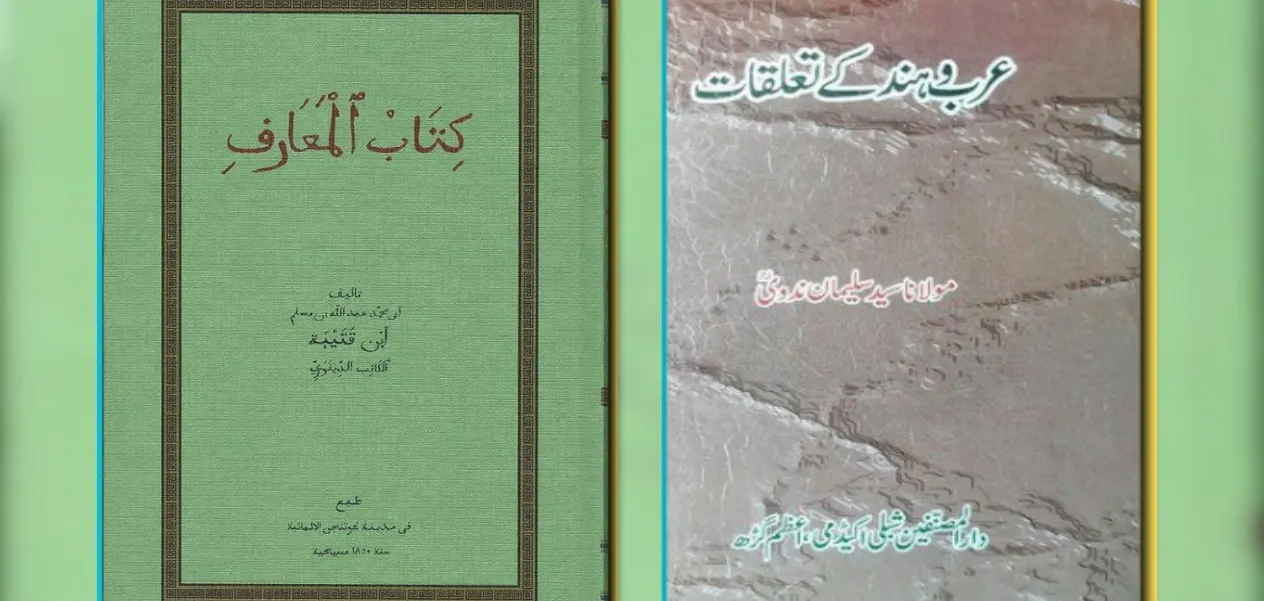SAUDI ARABIA / INDIA :

Imam Hussain was the grandson of the Messenger of Allah and Imam Zainul Abidin was his son. According to historical accounts in reliable texts the mother of Imam Zainul Abidin was a Sindhi woman. Imam Ibn Qutiba in Kitab al-Ma’arif, provided detailed information on this fact.
The Muslims refer to Imam Hussain descendants as Sayyid. Despite the fact that Sayyid’s were described as being half Indian by renowned Indian researcher Syed Sulaiman Nadvi in his book on Arab-Indian Relations. He claimed that Sayyids have always been half Indian, while other Muslims may or may not be half Indians.
This is possibly the reason why the Prophet Mohammad claimed in a hadith that he received cold breezes from India. (Mustadrak Al-Haakim Hadith 4053.) and Hazrat Ali also (RA) added,
قال علي بن أبي طالب: أطيب ريح في الأرض الهند، أهبط بها آدم
عليه الصلاة والسلام فعلق شجرها من ريح الجنة
India is the land of best wind, Saydana Adam was sent to India, where He also planted the fragrant Paradise plant.’ This close bond between India and The Prophet is not limited to this; in one of his hadiths, the Prophet said that Adam (peace be upon him) was sent to Indian region.
According to Syed Sulaiman Nadvi, when Hazrat Adam descended from the sky and was brought to India, which was described as paradise.
History is full of instances of such connections. Examples include Hazrat Uthman bin Abi Al-As Thaqafi, Hazrat Huqam bin Abi Al-As, Hazrat Mughira, Hazrat Rabi'ah bin Ziyad, Hazrat Abdullah Ansari, Hazrat Umair bin Usman, and Hazrat Asim bin Umar, among others, who travelled to India to spread Prophet Mohammad’s teachings.

After Hazrat Umar was elected as a Caliph, a close friend of the Prophet, he asked a traveller about what he thought of India.
The traveller responded as follows
: بحر ھا در و جبلھا یا قوت و شجرھاعطر (he said Indian mountains are rubies, its rivers are pearls,and its trees are fragrances.)
According to a legend, there were many Indian settlers in the Arab region at the time the Prophet declared his Naboovat (Prophethood), and Indians were well settled there even at that time. Indian swords were famous in Arabia even prior to the time of the Prophet.
In addition to the sword, a variety of Indian commodities were discovered in Arabia, and they were there in such large quantities that Syed Sulaiman Nadvi noted that the port of Abla, which is close to Basra, received such a large quantity of Indian goods that the local Arabs thought Abla was a miniature version of India.
Teak wood, swords, cotton and silk cloth, lemons, oranges,bananas, cinnamon, cloves, rubies, pearls, and other items were among the exports from India to Arabia.
The writings of Qazi Athar Mubarakpuri, Syed Sulaiman Nadvi, Akbar Ali Khan Qadri, Gustave Le Bon, and others are testimonials of good relationship between Indians and Arabs during the time of the Prophet.
This is likely the reason that Ibn Qutiba, as opposed to other historians, claimed that Hazrat Zain Albidin’s mother was an Indian.Many Sufis in India during this time worked to spread the teachings of the God-sent Messenger and his Indian associates. They arrived in India made themselves at home and benefited from the lessons of the Sahaba.
The Hindu religious texts examined by Al-Bairuni in Kitab Al-Hind more than a thousand years ago reveal that they are remarkably similar to Islamic teachings.The religious practises of the people of India, according to a sizable group of Sufis and academics, are remarkably comparable to the Messenger of Allah’s description of Wehdat (oneness of god). For this reason, Islam is still the major faith in India today.
source: http://www.awazthevoice.in / Awaz, The Voice / Home> Story / by Sayyed Taleef Haider, New Delhi / September 29th, 2023








